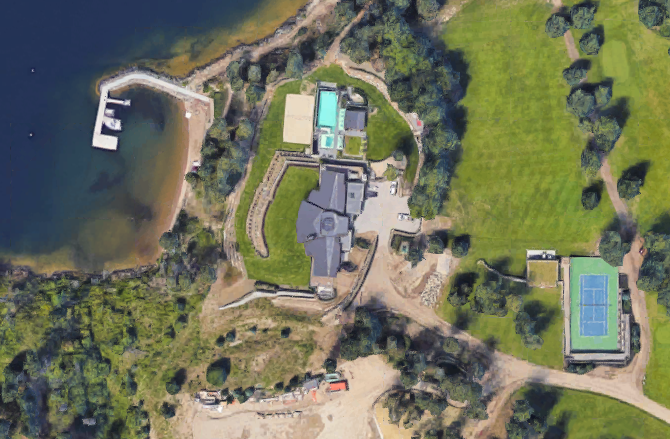Elevate your local knowledge
Sign up for the iNFOnews newsletter today!
Sign up for the iNFOnews newsletter today!
Selecting your primary region ensures you get the stories that matter to you first.

PROPERTY TAX RATE SET IN 1973 STILL APPLIES TO MANSIONS BUILT ON FARM LAND
KELOWNA – Paul Macklem remembers very well the last time he proposed ending the property tax break some farms enjoy in Kelowna — he got a proper chewing out from Kelowna's farm community.
“In 2000, I brought a report to council asking for changes in the tax treatment of farms,” Macklem recalls, who at the time was working as the city’s director of finance. “People were able to speak that night and they did just that. There was a big rally of farmers. Council at the time decided not to pursue it."
Now deputy city manager, Macklem says he would expect the same reaction today, should finance staff bring a similar proposal back to council.
“The farm community was not very happy then and I think they will be unhappy if we ever try again,” he says.
Still, Macklem says tax revenue the city forgoes — about $500,000 a year at 2016 tax rates — is a tempting target equivalent to about a 0.4 per cent tax increase.
What makes it more tempting is the practice by some property owners of placing large luxurious houses on property with farm status — it doesn’t have to be in the Agricultural Land Reserve — and producing some kind of nominal agricultural crop, enough to meet B.C. Assessment’s requirements.
“It’s a question of fairness. It’s not a huge amount but if you think about them getting all the services everybody else is getting, you might want to consider the change,” Macklem says.
Farm houses — principal residences built on properties with farm status — are taxed at .50 cents per $1,000 assessed value, a rate set in 1973 when Kelowna was forced by the province to amalgamate with several smaller communities.
“We went from eight square miles to 88 square miles over night,” Macklem explains.
To sweeten the deal and bring farmers onside, the province enshrined the .50 cent mill rate in the city’s letters patent. It’s still the same rate 43 years later and roughly amounts to 50 per cent off the municipal portion of a property tax bill.
Kelowna, Macklem says, is the only municipality left in the province that still hasn’t acted to revised the farm status tax rate.
“I think we’re alone now. I know Lake Country eliminated it when they incorporated,” he adds.
Macklem says there are 571 farm status properties that have a house on them, not including farm outbuildings — they are also taxed at a much lower rate.
“Currently there are $277.3 million worth of farm improvements, where they get the benefit of the lower rate,” he says. “We know there are very large homes where people have made a strategic move to take advantage of low taxation. It may not have been the decision point that made them build the house but it certainly doesn’t hurt."
One big reason Macklem says staff have not moved to change the farm status tax treatment is for fear of hurting real farmers, making them collatoral damage at a time when farming as a way of life is under increasing pressure.
“Each case needs to be looked at individually. There are still many farmers living in modest homes on their properties,” he says. “It’s a dilemma. Those who are fulltime farmers or those who at least depend on farming for a great part of their income — we don’t want to hurt them. We know farming is a struggle and we do not want to put them at a disadvantage.”
To contact a reporter for this story, email John McDonald at jmcdonald@infonews.ca or call 250-808-0143. To contact the editor, email mjones@infonews.ca or call 250-718-2724.
News from © iNFOnews.ca, . All rights reserved.
This material may not be published, broadcast, rewritten or redistributed.

This site is protected by reCAPTCHA and the Google Privacy Policy and Terms of Service apply.
Want to share your thoughts, add context, or connect with others in your community?
You must be logged in to post a comment.